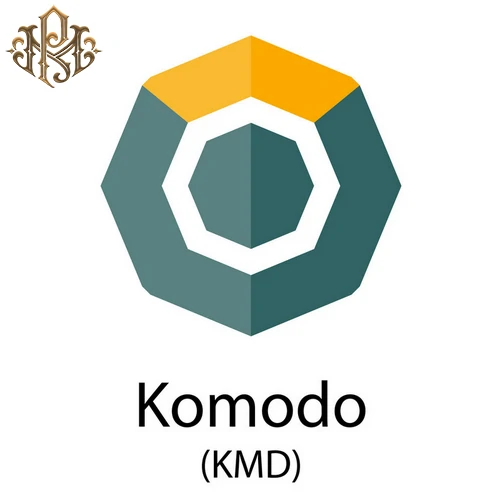
Close



Komodo is a blockchain-based digital currency and network that aims to provide greater security and better privacy than first-generation digital currencies such as Bitcoin. Comodo’s software platforms rely on a technology called zero-knowledge proof.
Almost 12 years have passed since Satoshi Nakamoto introduced Bitcoin to the world. Since then, the digital currency market has been booming and every day we see a new currency emerging. Some of these currencies are simply clones of Bitcoin and imitate it, while others have identified specific niches and applications and were created with those applications in mind. In this article, with the help of an article from CoinSutra, we will provide you with detailed information about one of the most popular emerging digital currencies, Comodo digital currency with the abbreviation KMD.
As mentioned, Comodo is a security and privacy focused digital currency. Comodo can be considered the “second part” of the digital currency revolution. The Comodo blockchain platform uses Comodo’s open source digital currency to conduct transparent, anonymous, confidential and fungible transactions. Using the Bitcoin blockchain, this platform provides extreme security for transactions through the Delayed Proof-of-Work (dPoW) protocol.
In a short time, Komodo digital currency opened its place among the top 50 currencies in terms of market value, and within six months its price grew by more than 2200%. Of course, it is currently ranked 129 in the market with a price of $0.56.
The Komodo platform will help the development and prosperity of the digital currency space in three ways:
By providing security to third-party blockchains
By providing apps with privacy features to enhance them
By providing tools to achieve price stability in peer-to-peer payment services.
Comodo currency is also the official currency of the SuperNET ecosystem.

To understand the Comodo platform, you first need to know about ZCash, the delayed proof-of-work protocol, and the Supernet ecosystem:
ZCash is an open cryptocurrency project that uses the zk-SNARK protocol, which is a new zero-knowledge proof-of-concept cryptographic protocol that guarantees the privacy, anonymity, and fungibility of any cryptocurrency. Comodo uses the same protocol to perform private and anonymous transactions.
This new protocol was created by Comodo developers. It is actually the same peering mechanism that uses the proof-of-work protocol (just like Bitcoin), except that it has another mechanism that validates the blocks in the blockchain and makes sure it hasn’t been tampered with. In this way, a second layer of security is added to the transactions.
64 predefined nodes perform this validation, eliminating the possibility of tampering. So if they want to manipulate Komodo’s transaction history, they must first change the chain of the Bitcoin block, which we know is impossible. If you want the white paper, you can find it in this link.
Supernet is a decentralized organization that digitizes decentralized and open-source tools for this aspiration. Among these tools, we can mention the multi-purpose wallets that they use, decentralized exchanges and tools to stabilize the price.
BarterDex is a decentralized exchange developed by Comodo team. This exchange uses the new Atomic Swaps technology and that is why we consider it a step ahead of other decentralized exchanges. Other decentralized exchanges use proxy tokens (proxy token) to enable exchanges on their platforms, but Bartradex solves this problem with the help of exchanges.
As the name suggests, dICO or “decentralized initial coin offering” is an initial coin offering (ICO) that Comodo’s platform enables to hold in a decentralized manner. dICO uses Bartradex and atomic exchange technology to distribute and issue tokens/coins in a completely decentralized and anonymous manner.
Jumbler is a decentralized “coin mixer” that can hide your identity. Jambler is one of the better mixers because Safar provides complete privacy for people’s identity using zero proof of identity and with a 0.3% fee, it’s really cheap compared to other services. To use this Jumbler feature, you must have an Agama wallet.
The Komodo platform gives different projects an independent chainmode, which of course depends on the creator. The dependency of these blockchains does not mean that they are limited to the Comodo blockchain. Such blockchains are called (also) blockchains in this ecosystem. These blockchains may or may not inherit features from future Comodo blockchains if they wish. But this does not justify their dependence on the Comodo platform.
Almost all Comodo team members care about privacy and therefore use pseudonyms. JL777, lead developer, and CA333, CTO of Comodo, are a few examples of such nicknames. This makes many people think that this project is suspicious and obscure, which is not the case.
According to data from CoinMarketCap, Comodo’s total circulating supply is 122.9 million KMD, and the current price per unit is $0.56. As such, Comodo’s market value is approximately $69 million at the time of writing.
It is somewhat difficult to buy Komodo directly with fiat currency. Instead, you can easily exchange other currencies such as Bitcoin, Litecoin or Ether for Comodo tokens on Shipshift. The process is very simple.
To buy Comodo, you need two things:
1. Comodo wallet address to store Comodo tokens
2. Some bitcoins or altcoins to exchange with Comodo
Some of the digital currency exchanges that include Komodo in their list are:
Binance: Supports Comodo/Bitcoin, Comodo/Ether and Comodo/Tether currency pairs.
Bittrex: supports the Comodo/Bitcoin currency pair.
UpBit: Supports Komodo/Bitcoin and Komodo/KRW which is the South Korean Won.